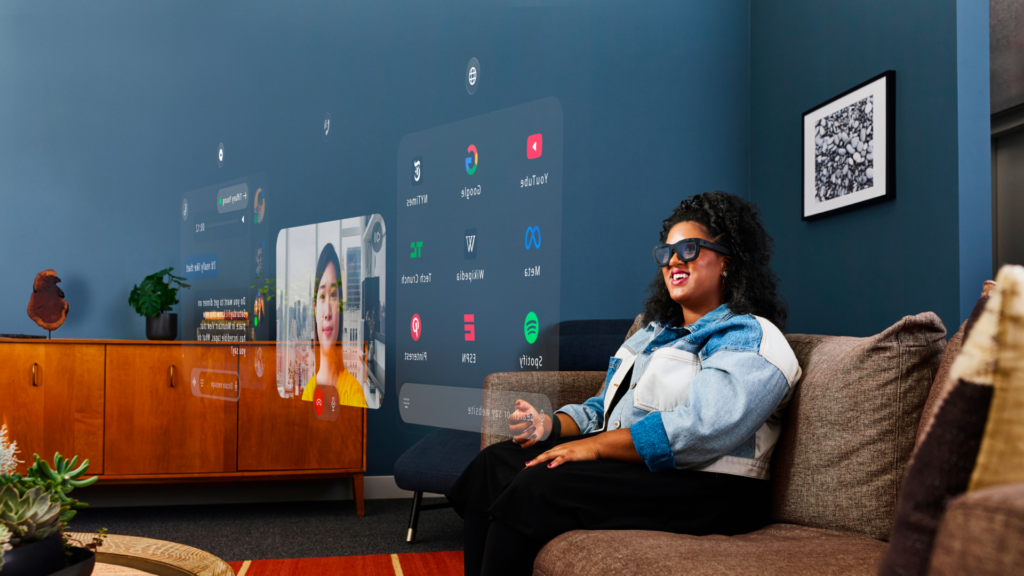Meta, the parent company of Facebook, Instagram, and WhatsApp, is making a major push into the world of wearable technology with a new line of AI-powered smart glasses. Unveiled by CEO Mark Zuckerberg at the company’s annual developer conference, “Meta Connect,” these new devices are part of a broader strategy to integrate the company’s artificial intelligence, Meta AI, into the daily lives of consumers.

The new collection, developed in partnership with eyewear brands Ray-Ban and Oakley, includes several models designed to appeal to different users. The centerpiece is the Meta Ray-Ban Display glasses, which feature a full-color, high-resolution screen in one lens. This allows users to conduct video calls and view messages directly through the glasses. It also comes equipped with a 12-megapixel camera. The glasses will be available this month for a retail price of $799, a significant price increase from Meta’s previous models.
In addition to the Ray-Ban Display, Meta introduced the Oakley Meta Vanguard glasses, priced at $499 and specifically designed for sports enthusiasts. A second generation of the more affordable Ray-Ban Meta glasses was also announced, priced at $379.
A “Scientific Breakthrough” with Practical Applications
Zuckerberg described the technology as a “huge scientific breakthrough,” highlighting how the glasses could become a key platform for Meta’s AI tools. The company also demonstrated a neural wristband that pairs with the glasses, allowing users to perform tasks like sending messages with simple hand gestures.
This move into smart glasses is seen by many analysts as a more promising venture than Meta’s multi-billion dollar investment in the virtual reality-based Metaverse. Forrester analyst Mike Proulx noted that, “Unlike VR headsets, glasses are an everyday, non-cumbersome form factor.”
However, not everyone is convinced. Leo Gebbie of CCS Insight expressed skepticism about the potential success of the high-priced Ray-Ban Display model. He pointed out that the more affordable and subtle nature of the earlier Ray-Ban models contributed to their success, with the company reportedly selling around two million pairs since 2023. “The onus is on Meta to convince the vast majority of people who don’t own AI glasses that the benefits outweigh the cost,” said Proulx.
Investing Heavily in an AI Future
The launch of these new devices comes as Meta is in the midst of a massive spending spree to bolster its AI operations. Zuckerberg has announced plans to spend hundreds of billions of dollars on building expansive AI data centers across the U.S., including one site nearly the size of Manhattan. This significant infrastructure investment is supported by a push to hire top talent from rival companies.
Meta has publicly stated its ambition to develop “superintelligence,” a form of AI that can outperform human beings. The company’s new line of smart glasses appears to be a crucial step in its long-term strategy to embed this advanced technology into everyday consumer products.








